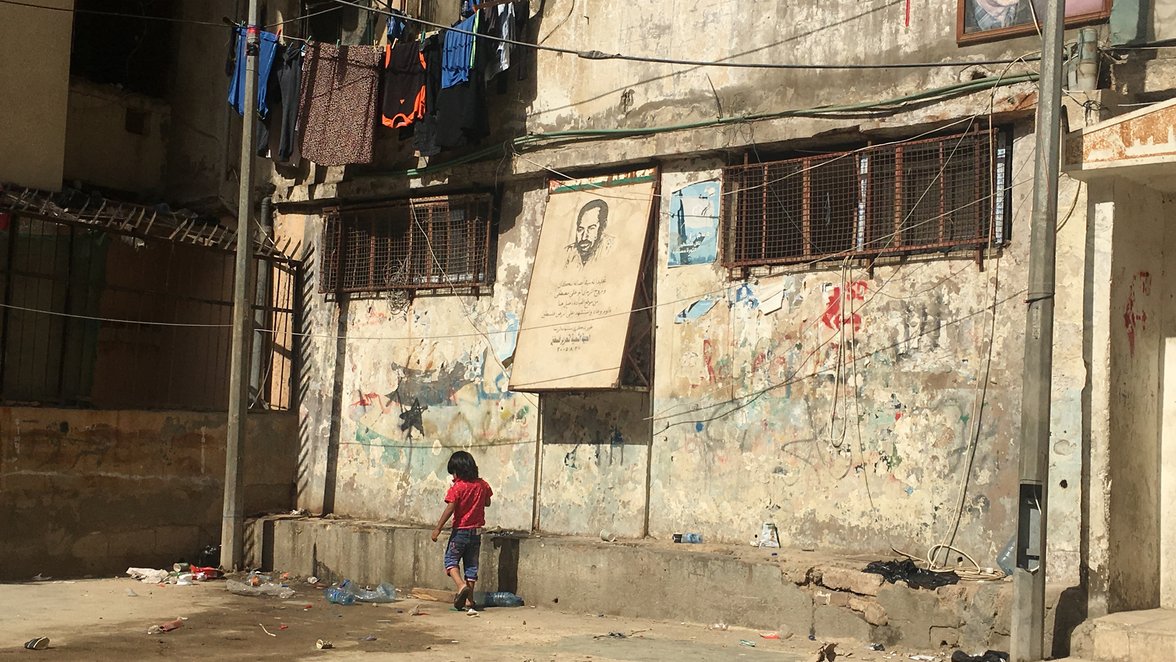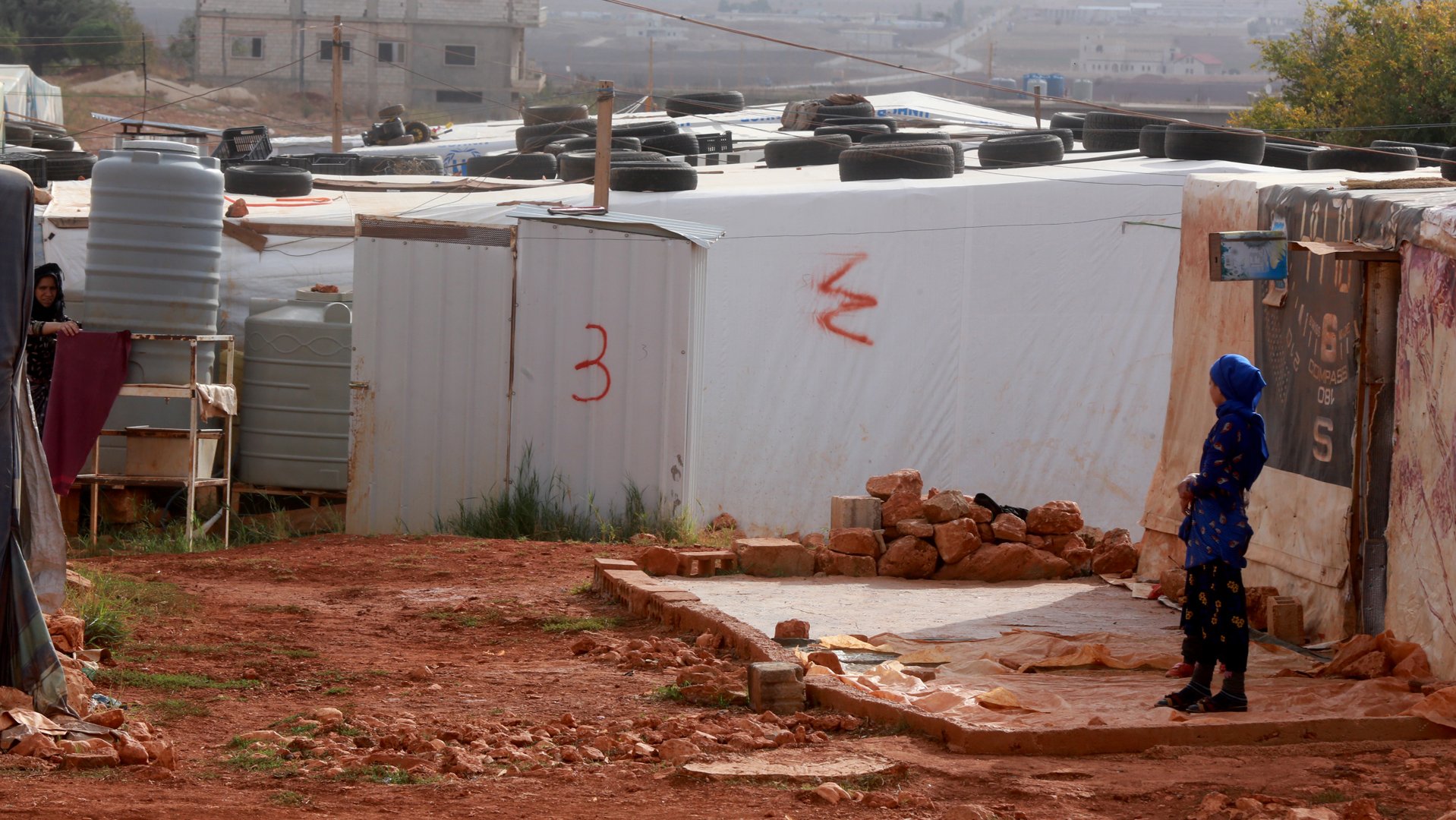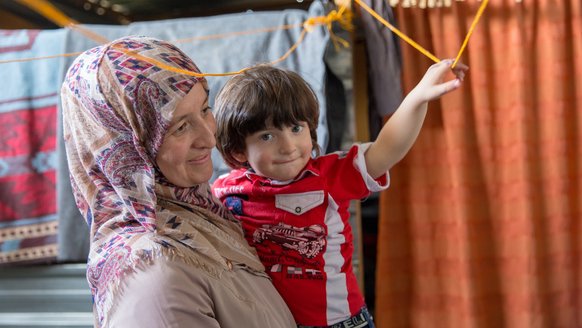How we adapted EASE (Early Adolescent Skills for Emotions) in Lebanon
May 19, 2020

Interlinked interventions: Care System
The War Child Care System is a holistic set of interlinked interventions that address the educational, child protection and psychosocial mental health needs of children. The system address all levels of a child’s development - focusing on children themselves, their families, their communities and their education systems.
The EASE (Early Adolescent Skills for Emotions) intervention - developed by the World Health Organization - is a core component of our Care System - and like all our integrated interventions is subject to rigorous evaluation to test its effectiveness. Interventions are quality assured through four phases of research: developmental research, pilot research, full-scale trials and implementation research.
This process sees each intervention adapted to a region or country’s cultural and contextual realities before testing or implementation begins. This is vital to ensure that each intervention is culturally and contextually relevant, sensitive, relevant, and feasible. It also allows researchers to account for contextual and cultural differences that determine people’s norms, understandings and behaviours - and frequently yields fresh insights…
This blog is based on an original research article first published in Frontiers in Psychiatry, March 2020.
Inside EASE
The Early Adolescent Skills for Emotions (EASE) intervention aims to address symptoms of depression and anxiety - otherwise known as internalizing problems - in 10 to 14-year-olds living in adversity.
EASE works with both young adolescents and their caregivers. The intervention is made up of seven group sessions for adolescents. These sessions focus on four main skills:
- Emotion identification: Understanding my feelings
- Diaphragmatic breathing: Calming my body
- Behavioural activation: Changing my actions
- Problem-solving: Solving my problems
In addition, there are three sessions with caregivers. These sessions concentrate on positive parenting practices to improve caregiver-child relationships by enhancing the confidence caregivers have in how they respond to their adolescents in distress.
War Child is conducting an evaluation of the EASE intervention in Lebanon, as part of the STRENGTHS consortium. Alongside this, evaluations are ongoing in Tanzania, Pakistan and Jordan.
What we did
The War Child team worked on a lengthy and systematic process of adaptation over several stages in Lebanon, to ensure the best possible adaptation of the intervention and project to the setting.
- A scoping review of scientific literature was conducted on mental health in Lebanon, with a focus on Syrian refugees;
- A rapid qualitative assessment was undertaken, involving interviews and focus groups with adolescents, caregivers, community members and health professionals;
- Cognitive interviews were held to specifically go through the EASE material with target adolescents and caregivers, and receive feedback, including sections of the facilitator’s manual, workbooks and session handouts;
- A psychologist review was conducted with Lebanese psychologists to ensure adequate Arabic translation of key terms;
- Mock sessions were held with field staff and clinical psychology experts to run through the sessions and receive feedback;
- An adaptation workshop was held to reshape the intervention based on the insight provided in the previous steps;
- Feedback was gathered from the Training of Trainers workshop and subsequent practice sessions;
- Feedback was gathered from the Training of Facilitators workshop and subsequent practice sessions

Research activities are currently paused with respect to COVID-19 lockdown regulations.
Photo: War Child
Lessons learned at each step
- The review demonstrated that conflict-affected Syrians experience a wide range of mental health problems related to their living conditions in addition to their experiences of displacement and armed conflict. Children and adolescents in these circumstances experience emotional distress and anxiety. Significant barriers limit access to mental health support - including a lack of mental health providers, the stigma of mental illness, and limited financial resources. In Lebanon, some 70% of Syrian refugees live below the poverty line. Poverty intensifies feelings of hopelessness and frustration and compounds pre-existing mental health concerns.
- Key themes emerged from the rapid qualitative assessment: Emotional abuse and physical violence, Substance use, Poverty, Community awareness and coping mechanisms, Mental health service mapping, Input into the intervention implementation (such as the role of the caregiver, the location, scheduling, background of the facilitators)
- From the cognitive interviews, it emerged that caregivers were very wary of talking about suicide with adolescents. This highlighted that extra care and time would need to be dedicated to this important, yet sensitive, subject. Caregivers demonstrated that it was acceptable to talk about physical punishment, as many stated that this was common and parents felt they had no other option. This indicated that facilitators could bring this topic up in sessions as long as it was treated sensitively. It was observed that adolescents had a hard time talking about their mental health or that of their family. The team was able to identify which aspects of the intervention strategies were more difficult for adolescents to grasp, and therefore needed more explanation.
- The psychologist’s review identified that some phrases in the EASE session needed to be edited. For example, a change in the word for “emotional problems” in Arabic from “mashakel 3atifiah” (i.e. emotional problems) to “mashakel nafsiah” (i.e. psychological problems). The first phrase had romantic connotations that were not suitable for the context of EASE.
- Mock sessions were useful in learning how to increase participant engagement and improving the manuals.
- The adaptation workshop provided a chance to discuss the findings from the previous adaptation steps and make decisions on how to change the intervention accordingly. One significant change made saw a shift in the focus of some content from purely focusing on sadness and anxiety to also include emotions such as anger and aggression. This was due to the prevalence of aggression and violence coming up as issues facing the community.
- From the Training of Trainers and Practice Cycles, it was learned that participants would prefer sessions divided by gender. There were behavioural problems displayed by the male group, which indicated the importance of training the facilitators in behavioural management strategies.
- From the Training of Facilitators and Practice Cycles, the team was able to learn which strategies and exercises the participants found most and least useful. The specific feedback provided has been shared with the WHO and will be used for future intervention adaptations.
Emerging benefits
The adaptation of the EASE program in Lebanon is promising and indicates the acceptability and feasibility of a non-specialist-delivered intervention for adolescents and caregivers. The War Child research team holds that it is critically important to culturally adapt interventions across settings. Mental health and symptoms of mental illness are not ‘one size fits all’.
The benefits of adapting interventions standardized interventions that have been designed and tested in other settings are numerous and significant. Firstly there are cost benefits in adapting core materials that have already been quality-assured. Furthermore, additional studies provide greater insight into how the intervention works; much can be learned by replicating studies. Ensuring adequate time and resources for rigorous adaptation leads to more meaningful and impactful interventions.
This process of research and its findings has, we believe, significant potential - allowing for the delivery of effective interventions at scale, across multiple contexts.
To read the comprehensive list of changes made to the EASE intervention see the full article published in Frontiers in Psychiatry, 2020.
To read more about the study protocol of the EASE randomized controlled trials in Lebanon and Jordan see the original research article published in Trials, 2019.

